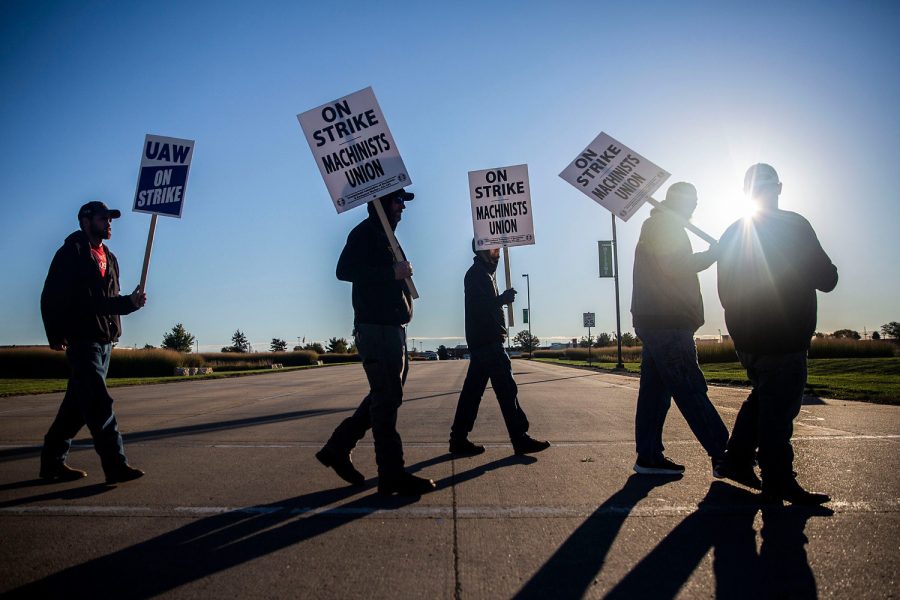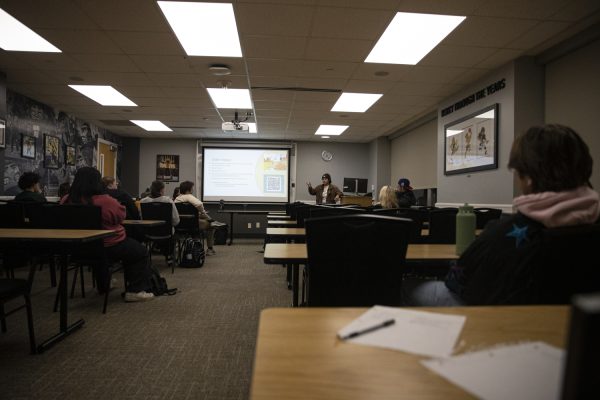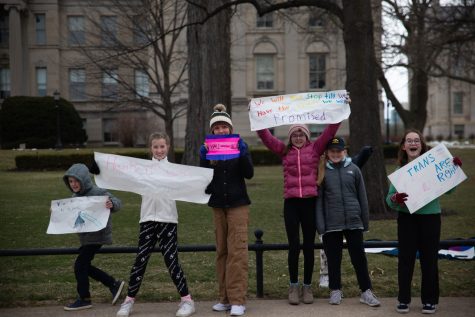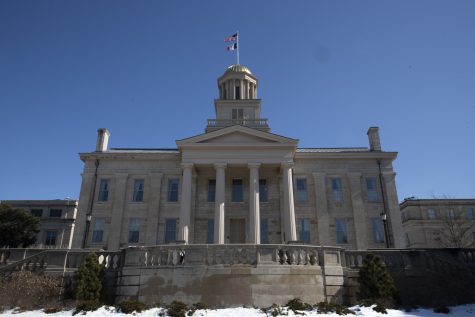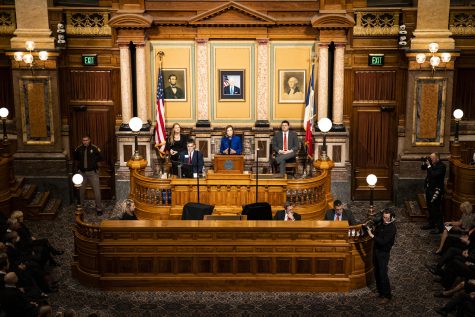Editorial | Workers are taking their power back
A string of strikes and resignations across the country this year show that workers have more bargaining power than they may realize.
Kelsey Kremer / USA TODAY NETWOR
United Auto Workers picket outside of John Deere Des October 14, 2021: Moines Works in Ankeny, Iowa. The Deere workers’ strike began at midnight. Ap Aptopix Deere Contract A Usa Ia
November 2, 2021
The phenomena known as Striketober and the Great Resignation show that workers finally have the leverage to demand fair wages and decent treatment from their employers.
Workers at several John Deere plants in eastern Iowa walked off the job two weeks ago after they rejected a deal negotiated by their union, United Auto Workers, or UAW. The deal negotiated by the UAW ensured that the wages of workers would rise by 5 to 6 percent for 2022, as well as 3 percent increases for 2023 and 2025.
However, in the past fiscal quarter, John Deere raked in a record $1.79 billion. The manufacturer is predicted to net nearly $6 billion in fiscal 2021. From 2020, the CEO of John Deere saw his compensation package increase by an absurd 160 percent. In short, workers are not getting their fair share.
John Deere has a notorious reputation for treating its laborers poorly. Many of the workers cited mistreatment from managers as well as long hours coupled with the aforementioned wage discrepancy as reasons for picketing.
The UAW strike is just a microcosm of what is happening in the labor market.
Workers at Kellogg’s across the country have also been on strike this month; workers at Kaiser Permanente in Georgia authorized a strike on Monday. And the union representing Hollywood film crew members is teetering on the edge as members plan to vote on a tentative contract agreement.
But the phenomenon is bigger than just unions — millions of workers across the country are quitting their jobs, tired of being shortchanged by their employers. Since former President Ronald Reagan’s time in office, the upper echelon who run billion dollar corporations have seen their personal wealth skyrocket.
On the other hand, the protections that workers once had through private-sector unions have dramatically diminished as unions have become weaker.
In Iowa, the number of employees represented by unions has decreased from 19 percent in 1989 to less than 10 percent in 2020. As a result, most workers are not on equal footing with their employer when it comes to contract negotiations. This has led to a stagnation in wages and decline in worker productivity.
The COVID-19 pandemic has upended this paradigm. Rather than striking like the John Deere picketters, millions of workers have simply quit their jobs in an attempt to force companies to raise their wages. Even before the recent strike, John Deere struggled to hire new workers.
From an economic point of view, individual workers collectively influence the labor supply in the U.S. Paying workers well and providing generous benefits is in the best interest of companies trying to hire and retain employees. However, these strikes, along with the pandemic, are leading to the possibility of another Great Resignation. Workers are burned out; almost three-quarters of workers feel disengaged with their jobs.
In other words, Americans work too much for too little. Anthropologists have made the case that, before the Agricultural Revolution almost 12,000 years ago, humans in hunter-gatherer societies spent more time in leisure compared to the modern American worker.
It should not be the case that a prehistoric human who lived in harsh conditions, with danger around every corner, was better rested than the 21st-century worker.
Therefore, many industrialized nations have begun to experiment with four-day work weeks so that working professionals can spend more time recovering from burnout, and building relationships with their families. Early results have shown that, when workers spend less hours working, their productivity and mental well-being increase substantially, allowing for a more equipped and happier workforce.
Due to the worker burnout and the experiences of other developed nations instituting shorter work weeks, many Americans are reassessing the work-life balance and the meaning of work.
It took a pandemic that ravaged the fabric of American society for workers to finally gain some leverage over their employers. That being said, workers face an entrenched system that must be reformed before they can truly gain the protections and wages that they deserve. The UAW strikes, along with the Great Resignation are critical first steps in that road to reform.
Editorials reflect the majority opinion of the DI Editorial Board and not the opinion of the publisher, Student Publications Inc., or the University of Iowa.
Editorial board members are Caleb McCullough, Rylee Wilson, Josie Fischels, Hannah Pinski, Shahab Khan, and Sophie Stover



